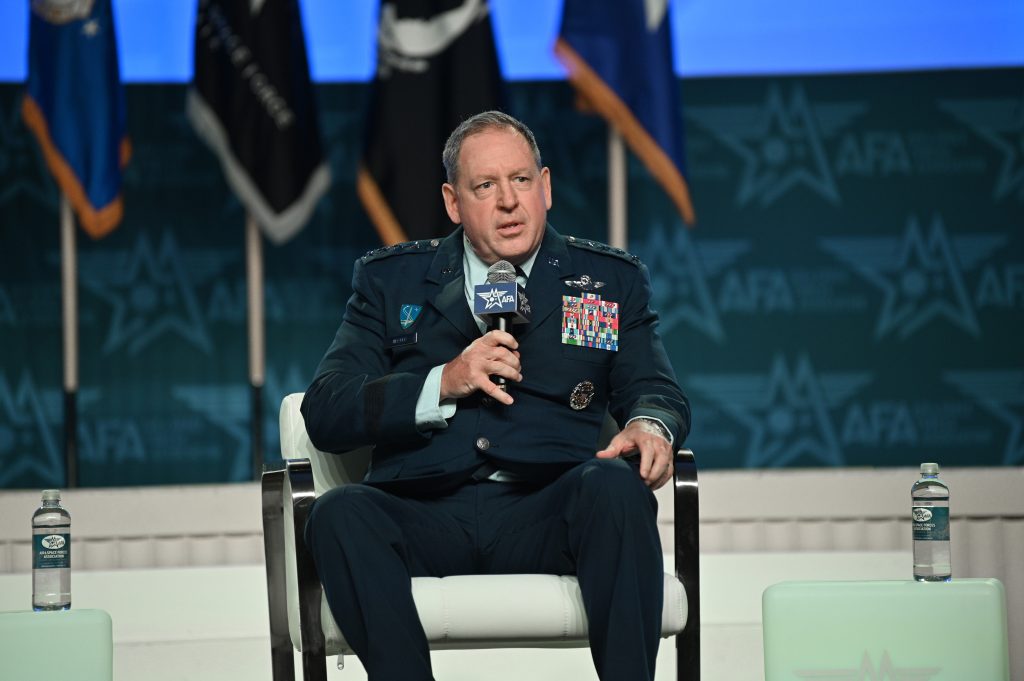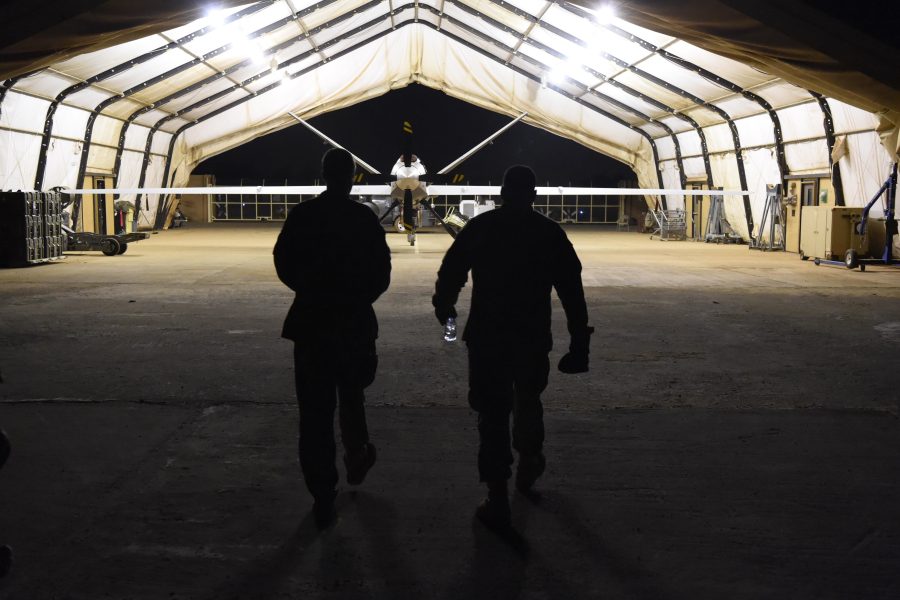The U.S. has resumed drone flights out of Niger “within the last couple of weeks” despite a coup that overthrew the democratically elected president, the top U.S. Air Force commander for Africa said Sept 13.
America had halted drone operations after the July coup, Gen. James B. Hecker, commander of U.S. Air Forces in Europe-Air Forces Africa told reporters on Sept. 13 at AFA’s Air, Space & Cyber Conference.
“We’re continuing to do the mission now,” Hecker said.
Some 1,100 U.S. troops are based in Niger, and now U.S. manned and unmanned platforms are back to more normal operations. That has allowed the U.S. to regain some visibility into a region that has long been a focus of counterterrorism efforts. However, Deputy Press Secretary Sabrina Singh said on Sept. 14 that the U.S. has “not restarted counterterrorism operations” in Niger.
“We can confirm that U.S. forces in Niger commenced ISR flight ops to monitor for threats for purposes of force protection,” Pentagon Press Secretary Air Force Brig. Gen. Patrick S. Ryder said in a statement to Air & Space Forces Magazine Sept. 13. “We have secured approvals from appropriate authorities. The United States always reserves the right to conduct operations to protect our forces and personnel, if required. We have not restarted security force assistance training or counterterrorism cooperation with Niger.”
Ryder declined to comment on specific operations “for security purposes.”
The U.S. has taken a wait-and-see approach since the junta’s takeover, which risked jeopardizing U.S. counterterrorism missions in much of Africa and raised questions about America’s ability to carry out military operations in that region. The Biden administration has not officially declared the removal of President Mohammad Bazoum a coup, a legal move that would require the U.S. to cut off military assistance under U.S. law.
Since the coup, current and former U.S. officials have stressed that there might still be some hope the U.S. could reach an agreement to resume counterterrorism efforts.
“If Western operations are significantly impacted by this, it’s going to be bad for the Nigerien people,” retired Army Gen. Stephen J. Townsend, who led U.S. Africa Command from 2019-2022, previously told Air & Space Forces Magazine. “It’s going to be bad for the region. It’s going to be bad for Europe before it’s bad for America, but it’s going to be bad for everybody.”
Led by the State Department, the U.S. was able to calm tensions and regain its ability to use the country as a vital drone base, Hecker said.
“They were able to turn that around fairly quickly where we didn’t have to totally evacuate everything out there,” Hecker said of the State Department’s efforts.
The U.S. did move personnel from Air Base 101 near the capital of Niamey to Air Base 201 over 500 miles away in the city of Agadez on the edge of the Sahara desert. “But we did take some things and personnel, and we moved them to 201, which is a base which isn’t under as much pressure, if you will. And we hope that that’s going to be maybe a temporary thing, and things will calm down as they appear to be,” Hecker said.
The Pentagon acknowledged the movement of U.S. forces from Air Base 101 to Air Base 201 in “a precautionary measure,” Deputy Pentagon Press Secretary Sabrina Singh said Sept 7.
Hecker said that while aircraft are still flying, the distance between the two bases did have an operational impact, as many targets of surveillance are farther from Air Base 201 than Air Base 101.
“You’re doing the mission, but you’re not getting as much data because you’re not overhead for as long just because of the gas it takes to get there and back,” Hecker said.
This article was updated on Sept. 14 with comments from Deputy Pentagon Press Secretary Sabrina Singh.

